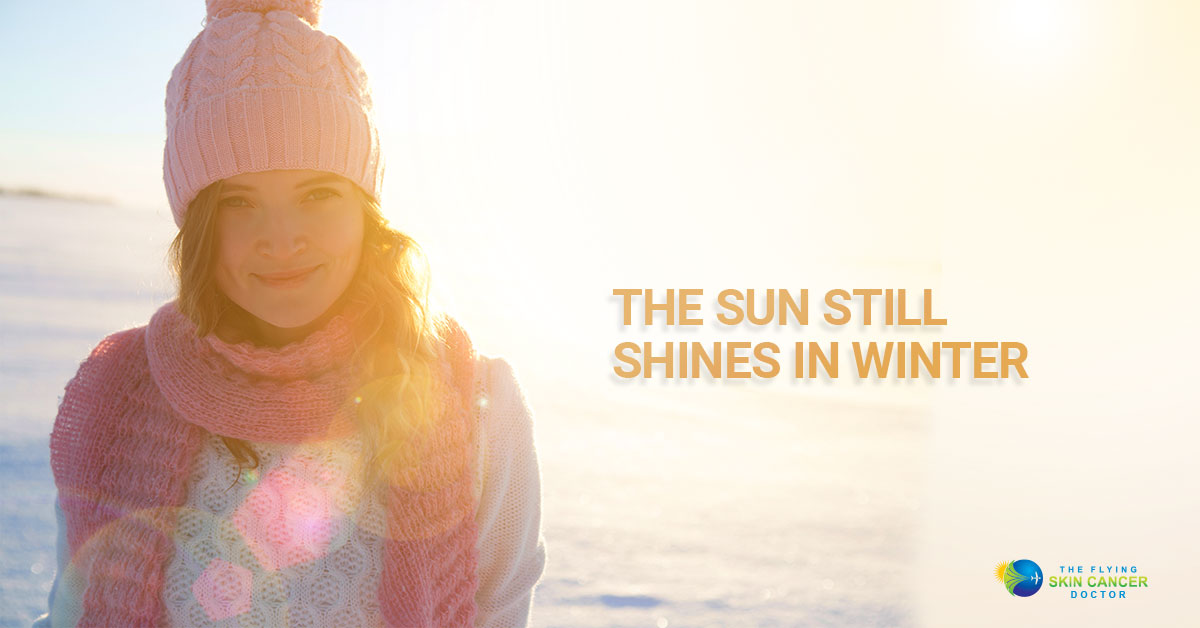Winter is coming, yet contrary to popular belief you’re not much safer from skin cancer than you are in summer. Let us explain:
When talking about skin cancer people tend to go to the usual suspects and think about sun exposure. Therefore when wintertime arrives, especially on cold or snowy days we tend to forget that the sun and it’s UVA rays are still there, reflecting on Earth, hitting our skin and putting us in danger.
That’s why The Flying Skin Cancer Doctor doesn’t want you to forget that even though it’s winter, you have to take certain precautions if you are going to be exposed to UVA rays, whether it’s because you work outdoors or are just an air, sun and outdoor enthusiast.
Remember: early diagnosis can save your life. Do not hesitate to come to us ASAP!
Sun protection is necessary every day regardless of the weather, or time of year. UVA rays can penetrate through clouds and fog and even glass. That’s why we advise a round-the-clock use of sunscreen, preferably one that includes skin moisturizing. Don’t risk confusing dry skin with a more serious issue, and you should also avoid the urge to use tanning beds and solariums to keep your tan year-round because they increase your risk of Melanoma by 20 per cent, and the risk rises to 59 per cent if exposure was before 35 years of age.
Moreover, don’t forget your face. Your first line of defence against this sun damage is clothing. Covering up is easier in the winter — it’s cold! — but the face, head and neck tend to remain exposed year-round, and this is where most skin cancers occur. Don’t forget your UV-blocking sunglasses and broad-brimmed hat before heading out. Sunglasses protect your eyes while also fighting snow glare, and a hat keeps you warm while keeping UV rays from damaging your scalp.
To summarize, here are a few Winter Skin Cancer Prevention Tips:
- Apply sunscreen – moisturizing if possible with an SPF (Sun Protection Factor) of 30 or higher. Make sure it evenly covers all exposed skin and reapply every two hours.
- Always wear a lip balm with an SPF 15 or higher – lips are very sensitive.
- Cover your head – it will protect your scalp and help keep you warm.
- Sunglasses that offer 99 percent or greater UV protection and have wraparound or large frames will protect your eyes, eyelids and the sensitive skin around your eyes, which are common sites for skin cancers and sun-induced aging.
Finally, don’t stop consulting. Our services are at your fingertips. We specialize in diagnosing and treating skin cancer. Check our website and contact us. Remember that time is of vital essence when dealing with cancer.




